Don't Think I've Forgotten: Cambodia's Lost Rock and Roll is a american film of genre Documentary
Don't Think I've Forgotten: Cambodia's Lost Rock and Roll (2014)
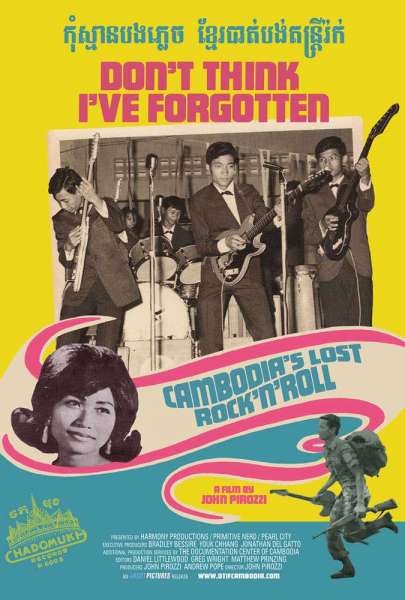
If you like this film, let us know!
- Infos
- Casting
- Technical infos
- Photos
- Videos
- Film quotes
- Characters
- Music
- Awards
OriginUSA
Themes Films about music and musicians, Films about racism, Documentary films about racism, Documentary films about law, Documentary films about war, Documentary films about historical events, Documentary films about music and musicians, Musical films
Rating77%










Don't Think I've Forgotten: Cambodia’s Lost Rock and Roll is a 2015 documentary film about Cambodian rock music in the 1960s and 1970s, before the Khmer Rouge regime and Cambodian Genocide.
The idea for the film began when American filmmaker John Pirozzi was in Cambodia filming City of Ghosts. He was given a copy of the album Cambodian Rocks, a collection of untitled and uncredited music by artists presumed killed under the Khmer Rouge, and began researching the stories of the artists.
Trailer of Don't Think I've Forgotten: Cambodia's Lost Rock and Roll
Bluray, DVD
Streaming / VOD
Comments
Leave comment :
Suggestions of similar film to Don't Think I've Forgotten: Cambodia's Lost Rock and Roll
There are 14615 with the same cinematographic genres (including 701 with exactly the same 2 genres than Don't Think I've Forgotten: Cambodia's Lost Rock and Roll), 9088 films with the same themes (including 3 films with the same 8 themes than Don't Think I've Forgotten: Cambodia's Lost Rock and Roll), to have finally 70 suggestions of similar films.If you liked Don't Think I've Forgotten: Cambodia's Lost Rock and Roll, you will probably like those similar films :
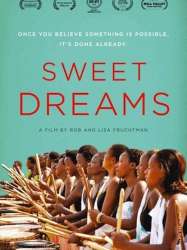
Sweet Dreams (2012)
, 1h26Directed by Lisa Fruchtman
Origin USA
Genres Drama, Documentary, Historical, Musical
Themes Films set in Africa, Films about music and musicians, Films about racism, Documentary films about racism, Documentary films about law, Documentary films about war, Documentary films about historical events, Documentary films about music and musicians, Documentaire sur une personnalité, Documentary films about politics, Musical films, Political films
Rating76%





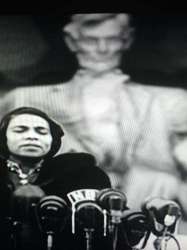
Genres Documentary, Musical
Themes Films about music and musicians, Films about racism, Documentary films about racism, Documentary films about law, Documentary films about music and musicians, Documentaire sur une personnalité, Films about classical music and musicians, Musical films
Rating60%






The Love We Make (2011)
, 1h31Origin USA
Genres Documentary, Musical
Themes Films based on the September 11 attacks, Films about music and musicians, Films about religion, Films about terrorism, Transport films, Aviation films, Documentary films about law, Documentary films about war, Documentary films about historical events, Documentary films about music and musicians, Documentary films about politics, Documentary films about religion, Documentary films about technology, Documentary films about terrorism, Documentary films about cities, Musical films, Political films, Films about Islam, Disaster films, Films about aviation accidents or incidents, Films about hijackings
Actors Paul McCartney, David Bowie, Jim Carrey, Harvey Weinstein, Leonardo DiCaprio, Jimmy Fallon
Rating64%






Heavy Metal in Baghdad (2007)
, 1h24Genres Documentary, Musical
Themes Films about music and musicians, Documentary films about war, Documentary films about historical events, Documentary films about music and musicians, Documentaire sur une personnalité, Musical films, Political films
Rating75%





In 2003, the Iraqi heavy-metal band Acrassicauda was the subject of a Vice magazine article. With the magazine's help, they were able to stage a sell-out show in 2005 despite the recent ousting of Saddam Hussein. Filmmakers from Vice returned to Iraq in 2006 to track down the band. Upon their return they discovered the multitude of death and destruction, including rehearsing studios destroyed by bombs.
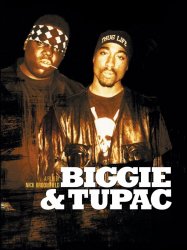
Biggie & Tupac (2002)
, 1h48Directed by Nick Broomfield
Origin United-kingdom
Genres Documentary, Musical
Themes Dance films, Films about music and musicians, Documentary films about law, Documentary films about music and musicians, Documentaire sur une personnalité, Hip hop films, Musical films
Actors Tupac Shakur, Nick Broomfield, Snoop Dogg, Suge Knight
Rating66%





Ce documentaire ouvre à nouveau les enquêtes sur les meurtres des superstars du rap, Biggie Smalls (The Notorious B.I.G.) et Tupac Shakur. Ces deux rappeurs, d'abord amis, sont devenus à cause de leurs succès respectifs des ennemis mortels. La thèse officielle de leurs assassinats est celle de la guerre du rap. Nick Broomfield offre la parole aux témoins et aux proches que la police n'a pas entendus. Les dessous de ces enquêtes bâclées révèlent la corruption des autorités, le pouvoir du producteur Suge, le rôle du FBI, les rumeurs selon lesquelles Notorious Big aurait commandité le meurtre de Tupac.
 , 1h31
, 1h31Origin Bresil
Genres Drama, Biography, Documentary, Musical
Themes Films about music and musicians, Documentary films about war, Documentary films about historical events, Documentary films about music and musicians, Documentaire sur une personnalité, Political films, Documentary films about World War II
Actors Alice Faye, Aurora Miranda, Carmen Miranda, Aloísio de Oliveira, Rita Moreno, Cesar Romero
Rating75%





Carmen Miranda, an almost ghostly character in the imaginary of Portuguese, Brazilian, and American audiences, comes back to life in the first scene of the documentary as a dream narrated by Helena Solberg. Images from her memorial service in Rio de Janeiro follow, showing the grief of her Brazilian fans as she says goodbye to what she considered her homeland. Born in the small Portuguese village of Varzea da Ovelha e Aliviada on February 9, 1909, Carmen was appropriated by the people of her village as a symbol of success. Making use of interviews with her younger sister Aurora Miranda, the documentary tales the migration story of Carmen, from Portugal to Brazil, were they arrived in November 1909. Carmen Miranda, daughter of a modest barber, Jose Maria Pinto da Cunha, lived in Rio de Janeiro. There, while working at a hat store, she was first discovered as a singing talent, growing up in Rio de Janeiro, as a working class adolescent, she noticed the strong influence of Samba music as a powerful cultural aspect of life in Rio’s slums.

The U.S. vs. John Lennon (2006)
, 1h39Origin USA
Genres Documentary, Musical
Themes Films about music and musicians, Documentary films about historical events, Documentary films about music and musicians, Documentaire sur une personnalité, Documentary films about politics, Musical films, Political films
Actors Tariq Ali, Walter Cronkite, John Lennon, Yoko Ono, David Peel, Gore Vidal
Rating72%





Alors que la guerre du Viêtnam suscite de plus en plus la polémique, que les manifestations s'intensifient et que le gouvernement américain multiplie les opérations d'espionnage et d'écoute, un chanteur célèbre décide de militer pour la paix. Il doit alors faire face aux représailles du gouvernement américain.
 , 1h33
, 1h33Directed by Barbara Kopple, Cecilia Peck
Origin USA
Genres Documentary, Musical
Themes Films about music and musicians, Documentary films about historical events, Documentary films about music and musicians, Documentaire sur une personnalité, Documentary films about politics, Musical films, Political films
Actors Elizabeth Reaser, Emily Robison, Adrian Pasdar, Rick Rubin
Rating75%





The film opens during the Dixie Chicks' 2003 Top of the World Tour, discussing the Dixie Chicks' super-star status prior the incident at their London show. They had sold more albums in the United States than any other female band in history. With the release of their 2002 album Home, they were again at the top of the Billboard Charts. The new single from that album "Travelin' Soldier", a sensitive depiction of a soldier's life during the Vietnam War era, and the young woman who waited for him, finding he was killed in battle, had peaked at #1 on the US Billboard Hot Country Songs Chart.
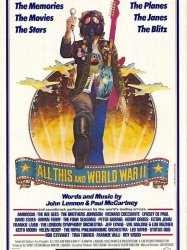
All This and World War II (1976)
, 1h28Origin USA
Genres War, Documentary, Historical, Musical
Themes Films about music and musicians, Documentary films about war, Documentary films about historical events, Musical films, Political films, Documentary films about World War II
Actors Milton Berle, Humphrey Bogart, Don DeFore
Rating59%





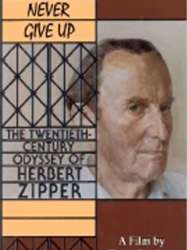 , 40minutes
, 40minutesDirected by Terry Sanders
Origin USA
Genres Documentary
Themes Films about music and musicians, Films about racism, Films about religion, Documentary films about racism, Documentary films about law, Documentary films about war, Documentary films about historical events, Documentary films about music and musicians, Documentaire sur une personnalité, Documentary films about religion, Films about classical music and musicians, Musical films, Political films, Films about Jews and Judaism, Documentary films about World War II
Rating59%





 Connection
Connection